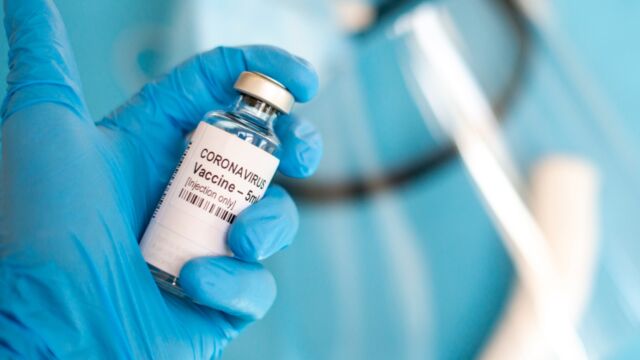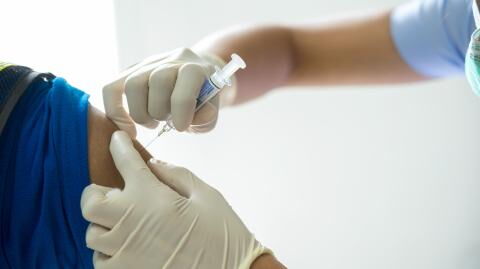Health Secretary Matt Hancock recently spoke out admitting that while the coronavirus vaccines may prevent you from getting infected, researchers are unsure if you’ll still be able to pass it on to someone else.
Discover our latest podcast
Research is still underway
The Health Secretary spoke at a Downing Street conference last week revealing that while coronavirus vaccines provide the recipient with protection from the virus, they may still be able to pass it on to others:
What we don't yet know... is how much you might transmit Covid, even if you don't suffer from the disease, after you've had the vaccine.
Hancock reassured that researchers are still working towards the answer, but in the meantime even once vaccinated we will still have to follow coronavirus safety guidelines such as masks and social distancing. The Health Secretay pleaded with the public:
The NHS, more than ever before, needs everybody to be doing something right now - and that something is to follow the rules. I know there has been speculation about more restrictions, and we don't rule out taking further action if it is needed, but it is your actions now that can make a difference. Stay at home, and please reduce all social contact that is not absolutely strictly necessary. That's what is needed: act like you have the virus.
Why do we need a vaccine?
Although research is still ongoing in regards to transmission, coronavirus vaccines are by far the safest way for communities to build immunity to the virus. It’s hard to know just how coronavirus could affect you or if you might experience any severe complications but vaccines can help to reduce chances of infection and mitigate any potential risks.
Before hitting the market all vaccines are carefully evaluated in clinical trials, and will only be approved for use if considered safe and drastically reduces the chances of contracting the virus. So far, vaccines that have been approved for rollout across the UK, such as the Pfizer and Moderna jabs, both have an efficacy rating of around 95% while the Oxford vaccine has been shown to be around 70% effective. Early data also shows that even if you do get infected once taking the jab, the risks of getting seriously ill could be minimised.
UK vaccinations now available for those over 70
This week, vaccinations are being rolled out for those over 70 as well as those considered clinically vulnerable to the virus. Prime Minister Boris Johnson has announced the move as a ‘significant milestone’ in the UK’s vaccination programme.
The news comes as 3.8 million people across the UK have now taken their first dose and ten new vaccination centres have opened, raising the levels of accessibility for the vaccine. Boris Johnson announced:
We are now delivering the vaccine at a rate of 140 jabs a minute and I want to thank everyone involved in this national effort. We have a long way to go and there will doubtless be challenges ahead - but by working together we are making huge progress in our fight against this virus.
However, even though the vaccine is now available to the third and fourth priority groups, Hancock has clarified that those over 80 should still have first priority:
This measure does not mean our focus on getting care homes, healthcare staff and those aged 80 and over vaccinated is wavering - it will remain our utmost priority over the coming weeks to reach the rest of these groups.
Where are the vaccination centres?
Those who are eligible for their first coronavirus vaccine will be contacted by their GP and can receive their jabs at any of the following centres:
- Bournemouth International Centre, Dorset
- Taunton Racecourse, Somerset
- Blackburn Cathedral, Lancashire
- Salt Hill Activity Centre, Berkshire
- Norwich Food Court, Norfolk
- The Lodge in Wickford, Essex
- Princess Royal Sports Arena, Boston, Lincolnshire
- St Helens Rugby Ground, Merseyside
- The park-and-ride at Askham Bar, York
- Olympic Office Centre in Wembley, north London
- Etihad Tennis Centre, Manchester
- Epsom Downs Racecourse, Surrey
- Robertson House, Stevenage
- Centre for Life, Newcastle
- Ashton Gate Stadium, Bristol
- Millennium Point, Birmingham
- ExCel, London















